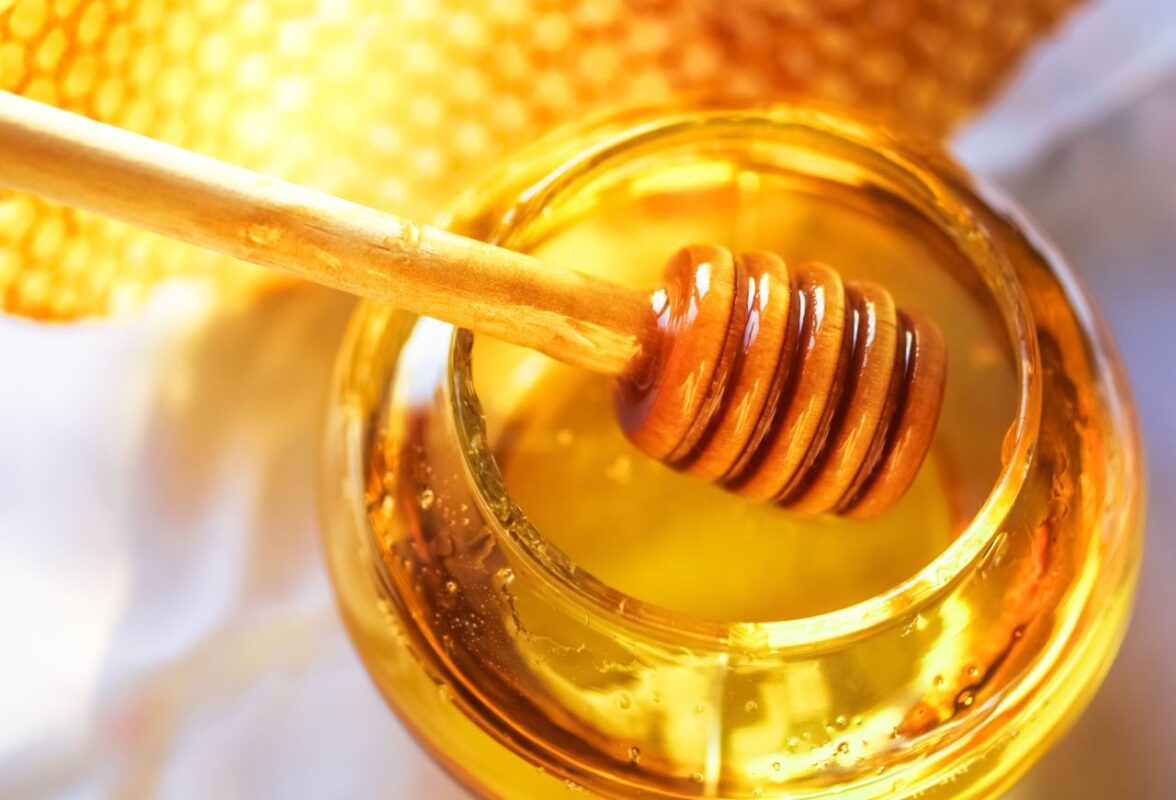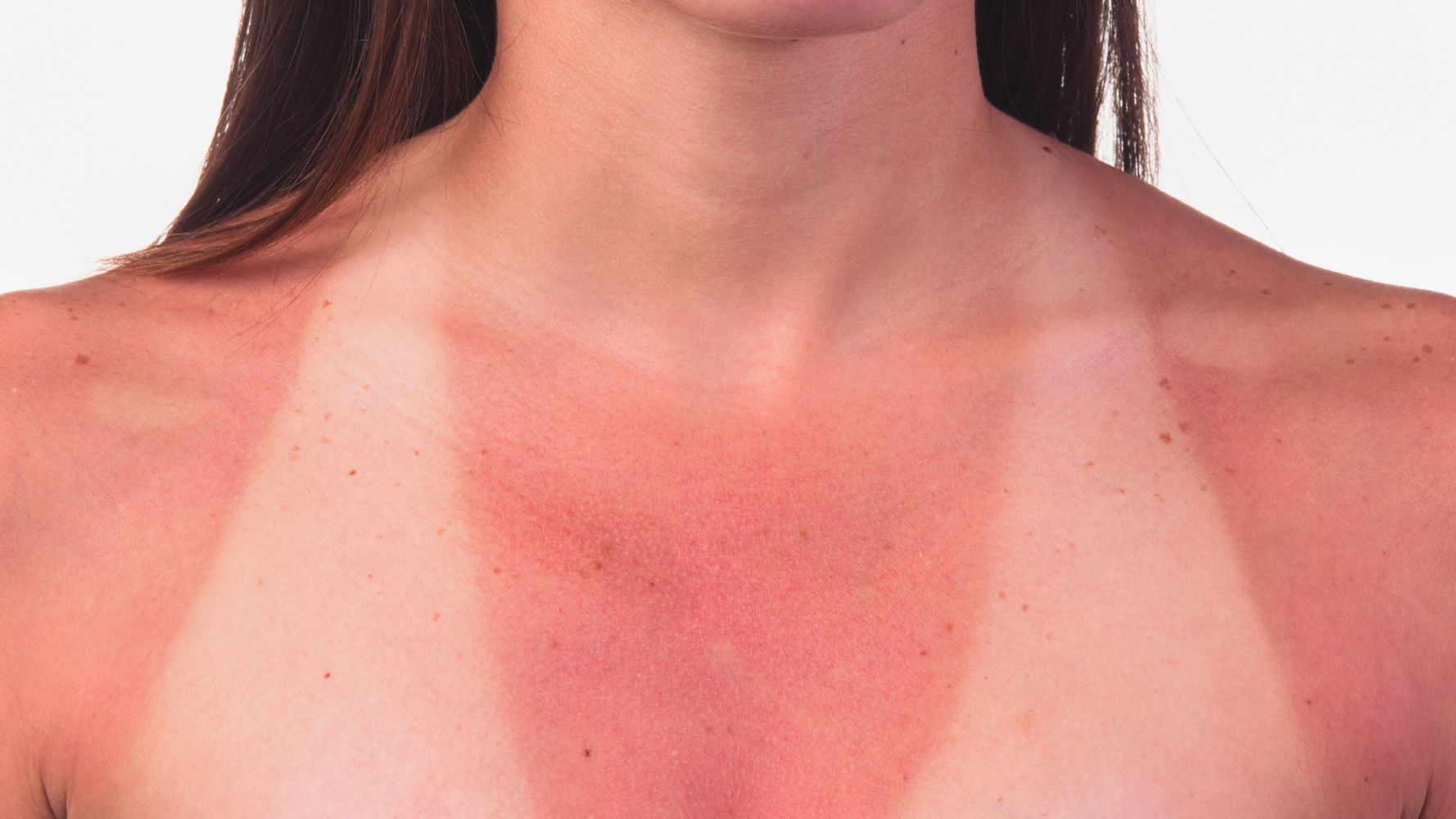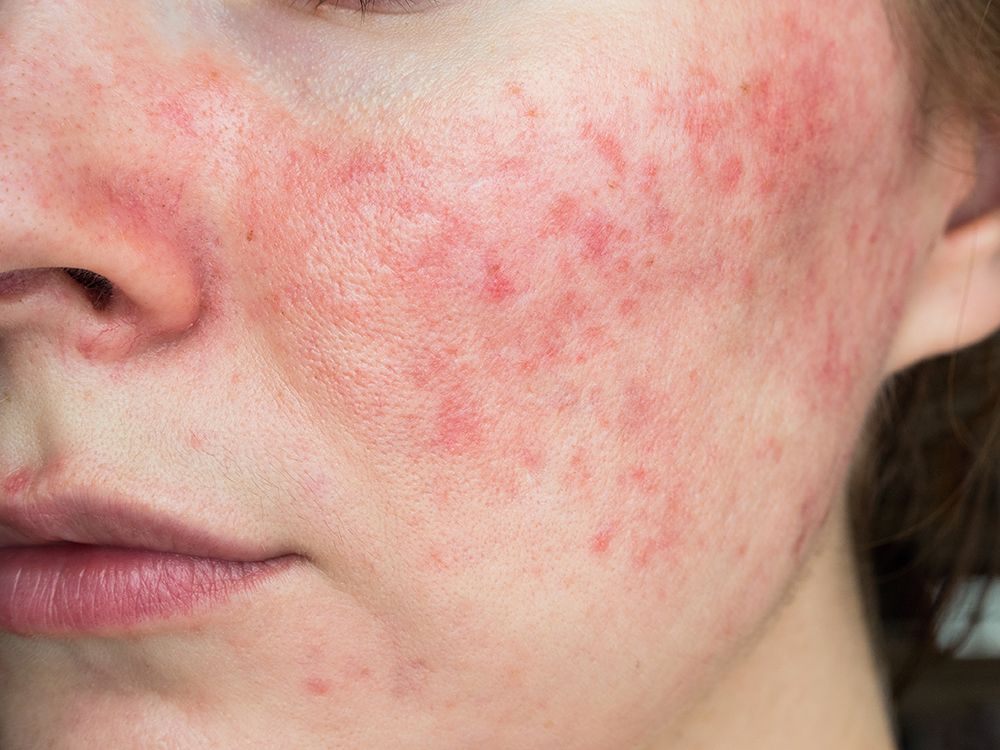Dermatitis, Inflammation, Rash, Milk crust, Tetter.
Root Cause of Disease
Your immune system’s defense is to create inflammation. Inflammation causes symptoms of eczema on your skin. Your genes: You’re more likely to have eczema if there’s a history of eczema or dermatitis in your family. You’re also at a higher risk if there’s a history of asthma, hay fever and/or allergies.
Symptoms
Symptoms of eczema include:
- Dry skin
- Itchy skin
- Skin rash
- Bumps on your skin
- Thick, leathery patches of skin
- Flaky, scaly or crusty skin
- Swelling
What does an eczema rash look like?
Eczema can look different on each person diagnosed with the condition. If you have a dark skin tone, an eczema rash can be purple, brown or gray. If you have a light skin tone, an eczema rash can look pink, red or purple.
Where do symptoms of eczema appear on my body?
Symptoms of eczema can show up anywhere on your skin. The most common places where you’ll notice symptoms of eczema include on your:
- Hands
- Neck
- Elbows
- Ankles
- Knee
- Feet
- Face, especially cheeks
- In and around ears
- Lips
Causes
Several factors cause eczema, including:
- Your immune system: if you have eczema, your immune system overreacts to small irritants or allergens (triggers) in your environment. When you contact a trigger, your immune system assumes that these small irritants are foreign invaders, like bacteria or viruses, that can harm your body. As a result, the triggers activate your body’s natural defense system. Your immune system’s defense is to create inflammation. Inflammation causes symptoms of eczema on your skin.
- Your genes: You’re more likely to have eczema if there’s a history of eczema or dermatitis in your family. You’re also at a higher risk if there’s a history of asthma, hay fever and/or allergies. Common allergies include pollen, pet hair or foods that trigger an allergic reaction. You could also have a genetic mutation that causes your skin’s barrier function to not work as it should.
- Your environment: There’s a lot in your environment that can irritate your skin. Some examples include exposure to smoke, air pollutants, harsh soaps, fabrics such as wool, and some skin care products. Low humidity (dry air) can cause your skin to become dry and itchy. Heat and high humidity can cause sweating and that can make your itchiness even worse.
- Emotional triggers: Your mental health could affect the health of your skin, which can cause a flare-up of eczema symptoms. If you have high levels of stress, anxiety or depression, you may have more frequent flare-ups of eczema symptoms.
Foods That Trigger Eczema
Between 20% and 80% of people with eczema have some kind of food allergy. When a person with eczema eats something, they are allergic to, it prompts an immune reaction that causes inflammation. This response can trigger or worsen an eczema flare.
Some of the most common food allergens that are known to have this effect include:
- Dairy products
- Peanuts
- Eggs
- Soy
- Wheat
- Seafood
- Shellfish
- In a survey of 169 people with eczema, 24.8% reported that dairy foods triggered their eczema.
- Other common food triggers were gluten (18.3%), alcohol (17.1%), sugar (16.5%), tomatoes (13%), citrus (10%), and eggs (7.1%).
- For some people, particularly infants and young children, an eczema flare caused by food allergens can cause hives and intense itching.
- When the cause of this reaction is unknown, food allergy tests and elimination diets can be done to find and avoid the allergen before it triggers more flares.
Elimination Diets
- Elimination diets work by gradually cutting out foods you suspect may be causing symptoms.
- If you find that a food isn’t causing symptoms, you can add it back to your diet and eliminate something else.
- Your goal is to find a link between a food in your diet and your eczema symptoms.
- Try to stick to your usual diet during this time, only eliminating one suspicious food at a time.
- Using a food diary to keep track of what you eat and your symptoms can be especially helpful.
- Keep in mind that eczema symptoms can begin anywhere from a few hours to two days after eating a food allergen.
- For this reason, you should eliminate a single food for at least three days at a time.
Home Remedies to treat Eczema
Remedy-1: Coconut oil
Materials Used: Coconut Oil

Coconut oil contains beneficial fatty acids that can add moisture to the skin, which can help people with dry skin and eczema.
Additionally, virgin coconut oil may protect the skin by helping to prevent inflammation and improving the health of the skin barrier.
In a 2014 study, researchers looked at the effects of applying virgin coconut oil to the skin in children. They found that using the oil for 8 weeks improved the symptoms of eczema.
Procedure:
- Apply cold-pressed virgin coconut oil directly to the skin after bathing and up to several times a day. Use it before bed to keep the skin moisturized overnight.
- Extra-virgin coconut oil is generally solid at room temperature, but the warmth of a person’s body turns it into liquid. The oil is available in health stores and online.
- However, people who are allergic to coconuts should not use coconut oil.
Product Link: Coconut Oil
Remedy- 2: Aloe Vera
Materials Used: Aloe vera gel

Aloe vera gel is produced from the leaves of the aloe plant. Aloe vera gel has been used for generations to cure various illnesses.
One typical benefit is that it instantly helps you find some relief from eczema.
Skin infections, which are more likely to arise in people with dry, cracked skin, can be avoided owing to aloe vera’s antibacterial and antimicrobial properties.
The skin-soothing and wound-healing qualities of aloe may aid in the healing process.
Procedure:
- The cooling effect of aloe vera gel can help relieve inflamed skin and itching.
- To use this remedy, spread gel on your skin once or twice a day.
Product Link: Aloe Vera Gel
Remedy – 3: Bath in Oatmeal
Materials Used: Oatmeal Bath

Colloidal oatmeal is a fine powder made of ground oats. When used in a bath, it can calm your skin by reducing inflammation.
Procedure:
To make an oatmeal bath:
- Fill the bathtub with lukewarm water. Avoid using hot water, which can further irritate eczema.
- Add 1 cup colloidal oatmeal. You may need more or less, depending on the size of your bathtub.
- Gently mix the water until it becomes milky. Soak for 15 to 20 minutes. Pat dry and apply moisturizer.
Product Link: Oatmeal
Remedy- 4: Cardamom
Materials Used: Cardamom, Honey


Procedure:
- Mix one teaspoon of cardamom powder with honey, and apply it to the acne spot.
- Due to its antibacterial properties, it will heal the acne and also clear the mark.
- You can use this method as a spot treatment, just apply a tiny amount of the paste directly on the problem area and leave it on overnight or for few hours, then rinse it off.
- You will see an instant result as it will help in reducing the swelling as due to its anti-inflammatory properties and it will also reduce the redness.
- Honey is also a natural moisturizing agent that will provide healing effects along with hydration.
Other Remedies
Tea Tree Oil
Tea tree oil has anti-inflammatory properties that could soothe irritation and is great for treating eczema. To use tea tree oil, you must first mix it with a carrier oil such as jojoba oil. This is because using tea tree oil in its undiluted state could cause certain side effects such as minor irritation which could make eczema worse.
Turmeric
Turmeric is one of the eczema home remedies in India. It is anti-inflammatory and has wound healing properties which makes it a great option when treating eczema. To use this herb, you can mix a spoonful of turmeric powder with some honey and apply it to the affected area. Let it sit for a few minutes before washing it off with water.
Apple Cider Vinegar
Eczema can also be treated using apple cider vinegar. To do this, add about two portions of apple cider vinegar to a warm bath. This will help in reducing inflammation on the skin and also reduce dryness.
Preventions
Limit Your Contact with Certain Household Items:
If you can determine what triggers your flare-ups, do your best to avoid these items. If you can’t figure out your triggers, certain household items are more likely to trigger an itchy eczema episode. Limit contact or take note of your contact with:
• Wool and polyester
• Soaps with fragrances
• Laundry detergents
• Aftershave lotions
• Turpentine and other solvents
• Certain household cleaners
Wear Gloves:
It shouldn’t be difficult to remember to wear gloves when you go out in the cold. Wearing gloves in cold weather not only keeps you warm but they also protect your hands against the cold air that can dry your skin and exacerbate your eczema. But you should also wear gloves, plastic ones when you do dishes and other work that exposes your hand to chemicals or irritants. Be sure to give your hands a break from the gloves every once in a while, though, because you don’t want them to get to sweat. Sweat can also exacerbate your eczema.
Practice Good Bath and Shower Etiquette:
Take warm baths or showers and keep them short. Long, hot showers can dry out your skin, making it more prone to flare-ups. Use unscented bath products, and not too much of them. When you’re done, use a soft towel to pat yourself dry. Don’t rub. Slather moisturizer on your skin immediately after a shower, while your skin is still damp, to help your skin absorb the moisture and lock it on.
Moisturize:
Dry skin gets irritated easily. It gets brittle and tight, which can lead to an eczema flare-up. The key to preventing dry skin is to slather moisturizer all over your body at least twice a day. Choose moisturizers without fragrance or a lot of extra ingredients. Creamy, thick ointments and creams are better than thin, watery moisturizers.
Reduce Stress:
Getting stressed out about your eczema makes it worse, as does scratching it. Also, stress, in general, can lead to a flare-up. Practicing stress reduction techniques such as deep breathing and meditation, and just looking for areas where you can reduce stress in your life can help prevent an eczema flare-up.




